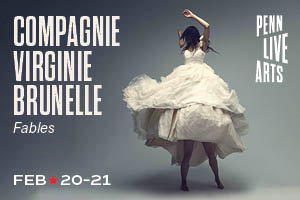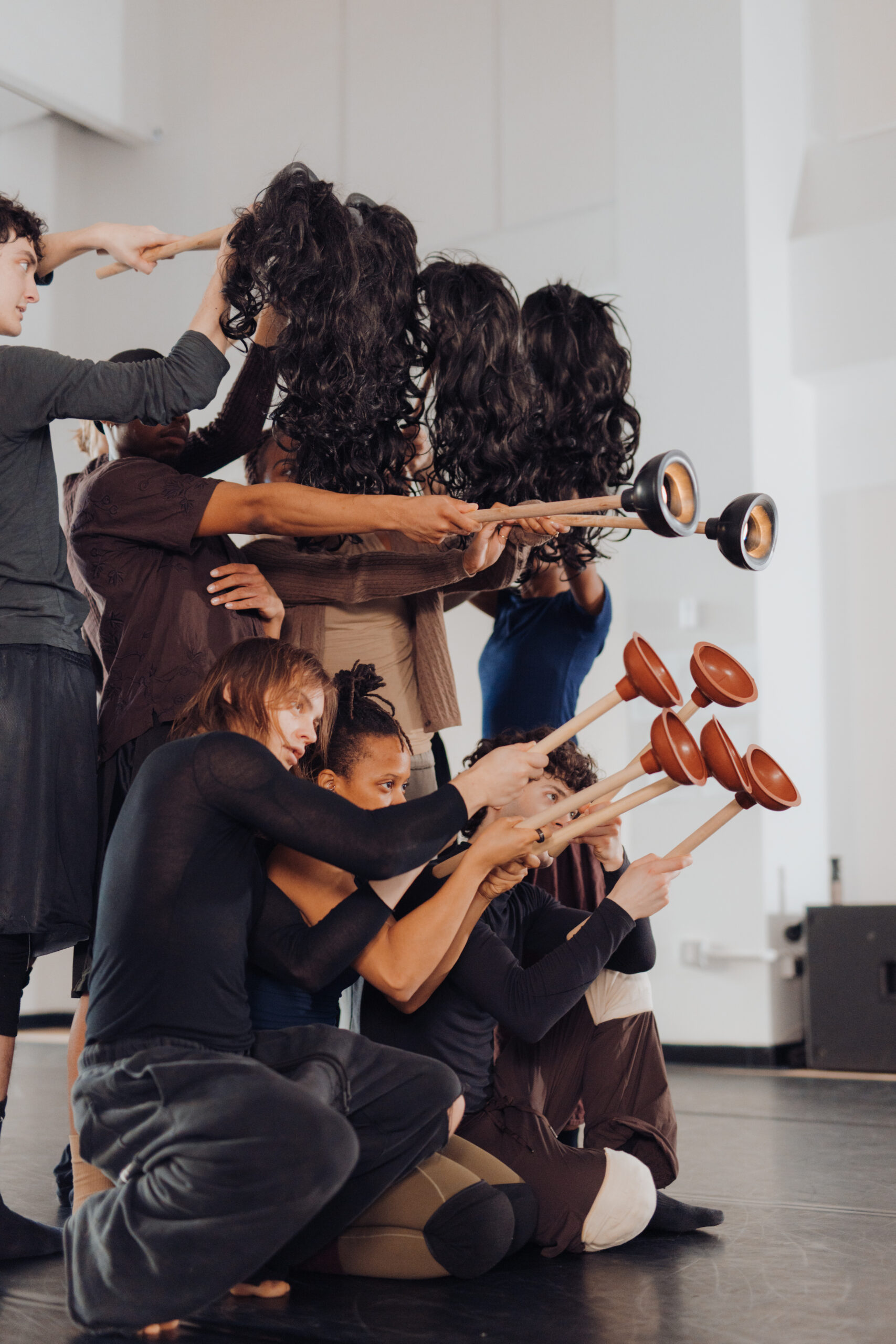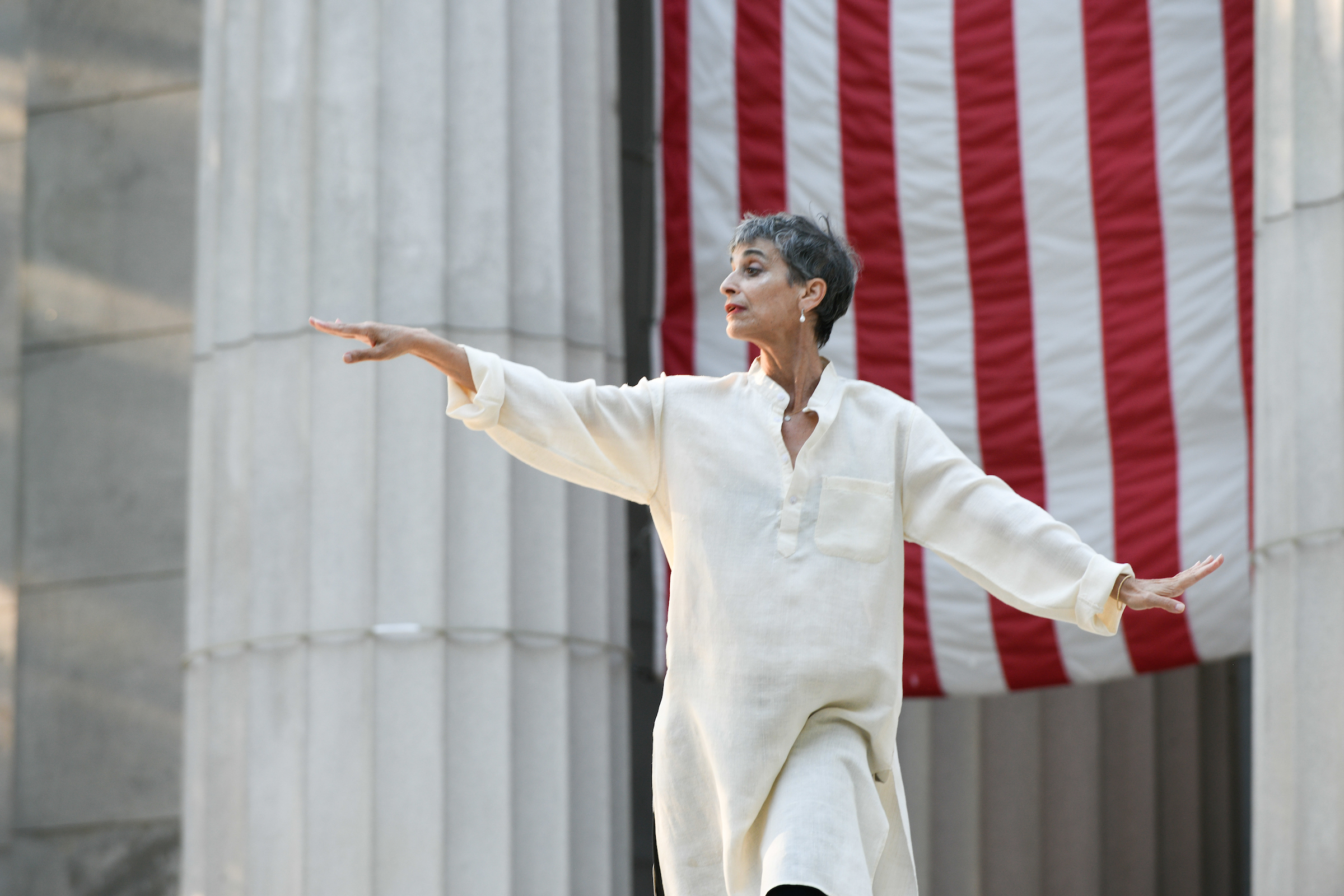“Kayla enters and lets. it. gooooo.”
Actually, we all enter and let. it. gooooo. It feels as though the entirety of Kayla Hamilton’s How to Bend Down/How to Pick it Up is about letting go – letting go of what we think we know about access, of what a dance performance is (or, can be), and what it means to be a ‘good’ audience member.
As I walk into the Griffin Theater for the second performance of How to Bend Down/How to Pick it Up, the atmosphere feels relaxed. Dancers in vibrant pedestrian clothing are warming up on the stage, wading in and out of the performance space to grab bottles of water from the audience and chat with one another as the seats slowly fill. Access doulas encourage us, the audience members, to help ourselves to devices for audio description, free bottles of water, and fidgets, while offering the option to float in and out of the space as we wish. We let. it. go. together.
The performance begins with a series of introductions. Each dancer slowly walks the perimeter of the stage space as an unseen audio describer introduces us to each dancer, reimagining the typical biography that might appear in a traditional written program. I glance over my shoulder and realize the audio describer is not quite as unseen as I initially thought – instead, the cast members alternate as describers. Some read from a book while others freestyle, responding to what the dancers on stage create in the moment. Yelling, exaggerated accents, ummmm…’s, and giggles are all part of the description.
The work is rooted in the story of an enslaved Disabled man who evades his own death, killing his enslaver in a lake. From the introduction of this storyline onward, the cast works together to co-create a liberated future that centralizes Black Disabled voices, one where every-body is free.
The cast is not concerned with perfection, even poking fun at it at times. Look we’re the ableists! One dancer jokes as the ensemble joins together for a typical unison modern dance combination. [Paul] Taylor runs, go! These types of unexpected descriptions are a pillar of the performance. Overlapping audio descriptions serve as instructions for the performers. At times, the cacophony even erupts into joyous gospel-inspired songs. The cast sings with soft smiles and swaying bodies: I’m gon’ crystallize, dig, and semi-circle spiral…
Throughout the performance, there is so much to engage with: the live performers, video projections of dancers including Jerron Herman and Vanessa Hernandez-Cruz, on-site access doulas, ASL interpreters, live CART captioning projected onto various screens throughout the room, and a musical score directed by Kahlil Daniel. How to Bend Down/How to Pick it Up expands and contracts, breathing a new life into the space it inhabits. Even with this multi-layered offering and a dynamite cast of performers, Kayla Hamilton’s presence is uniquely commanding. She expertly moves in and out of the audience, between the roles of describer and dancer, and between gooey post-modern improvisation and popular Black social dances like the Nae Nae.
A laudable addition to her decades-long career, How to Bend Down/How to Pick it Up feels like a new beginning for Hamilton. Alongside the development of what she proclaims to be her most ambitious performance project yet, Hamilton also recently celebrated receiving a Disability Futures Fellowship and the launch of her new organization, Circle O. To say she’s had an exciting year would be an understatement.
In their final moments, dancers float through the space like balloons. Shhh….. Are you finding it? One dancer says to the group. When you find it, pick it up. Hamilton and her cast have found it, and they are picking it up.
How to Bend Down/How to Pick it Up, Kayla Hamilton, The Shed NYC, Aug. 16-18.
Homepage Image Description: Kayla Hamilton, a Black woman in a flowing black tunic, extends her arms directly in front of her, open hands reaching forward. She is facing stage right, with an open facial expression. Photo by Ahad Subzwari/The Shed.
Article Image Description: Nicole Y. McClam, a Black woman, leans on Azure D. Osborne-Lee, a disabled Black trans and queer person, as they sit and sing out joyfully. Azure has their arm around Nicole’s shoulders, as Nicole rests a hand on her chest. Photo by Ahad Subzwari/The Shed.






